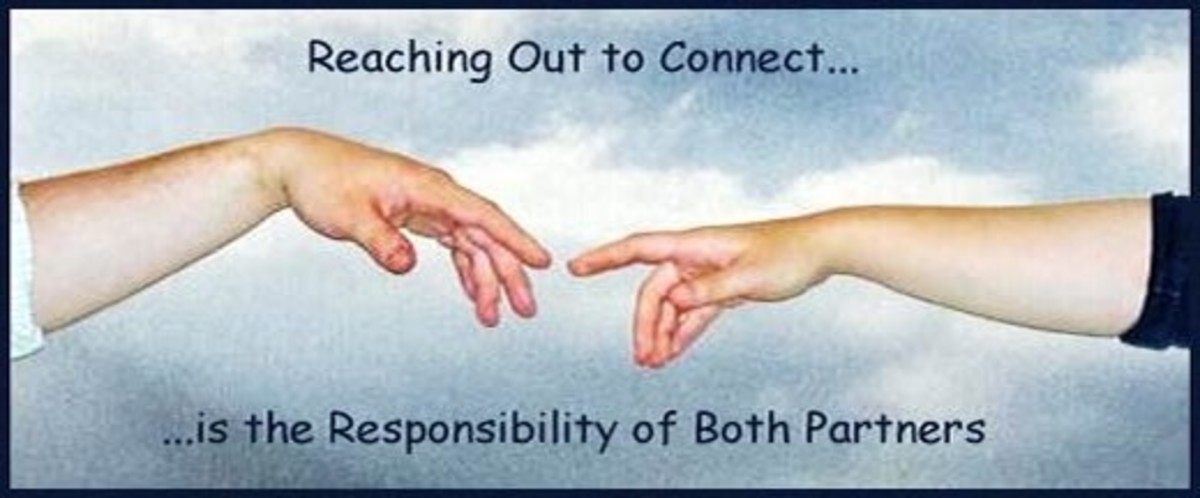
In the musical "Fiddler on the Roof" the heroine is amazed when her husband presses her for an answer to the question: “but do you love me?” The play is based on the story "Tevye's Daughters" by Sholom Aleichem. In the Eastern European shtetl "love" wasn't a frequently discussed topic. Essentially, Golde's answer was, “what do you mean do I love you? I wash your clothing, prepare your meals and bear your children, how could you ask me such a question? Indeed, how?” Indeed, what did Tevye mean by "love?" What do others mean by this word? What indeed is love?
Golde equated loving with fulfilling her role as a wife. Interestingly, her concept of a wife’s role (taking care of the physical needs) is the mirror image of the husband's role as a husband as enunciated in the Torah where it states, "If he take him another wife, her food, her raiment, and her conjugal rights, shall he not diminish." Now the rabbis of the Talmud add that he must also put her on a pedestal, spend more money on her than on himself, respect her opinions (as Abraham did when Sarah told Abraham that Yishmael would be a bad influence on Isaac and that he should send Yishmael away). So our rabbis of two thousand years ago enunciated the importance of the interpersonal relationship between husband and wife, emphasizing the husband’s obligations to his spouse.
Golde's response has two possible meanings (1) Of course I love you and the proof is I wash your socks, etc. or (2) Listen you numbskull, love is just an emotion; it is irrelevant, the important thing is what I do for you!
According to the Torah’s philosophy, which we heard at Sinai some 3300 years ago, the bond between husband and wife rests upon mutual obligations, and not upon mutual feelings.
Feelings for a spouse vs. action toward that spouse as a basis for evaluating a marriage is consistent with the words of Rabbi Shimon ben Gamliel, who states in Ethics of the Fathers the broad principle that the study of Torah, i.e. theoretical knowledge, is not the main thing, but rather a person’s deeds in fulfilling the commandments. In common parlance, we say: action speaks louder than words.
Be that as it may, love as action — after marriage — or worse, love as irrelevant as Golde tells Tevye, is comparatively foreign to contemporary Jewish singles who are horrified by the thought that they would have to wait until after marriage to be loved by their partner. The singles of today insist on being in love before marriage, and refuse to marry until perfectly assured that the love is mutual.
Can premarital love (which many would describe as infatuation) transform into marital love and a happy marriage? Obviously it can; witness all the happy couples who married for love. Does premarital love necessarily transform itself into a loving marital relationship? Obviously not; witness all the bitterness and hatred in the divorce courts between people who had married for love.
The fickleness of feelings presentsa real dilemma for a person contemplating marriage. Should he trust his — or his partner's — feelings of love? What guarantee does he have that present feelings will transform into future action? How can he or she measure love in the pre sock-washing phase of their relationship?
Some guidance to this problem might be gleaned from a psychoanalyst. In his famous monograph The Art of Loving, Erich Fromm negates the premise that love is merely a pleasant sensation which one falls into if one is lucky. He takes the position that love is an art which requires knowledge and effort. Love is giving. The ability to love presupposes that the person has overcome dependency, narcissism, the wish to exploit others, or to take as much as he can get, and has acquired faith in his own human powers to give without feeling depleted. If he has not attained this level of development, he is afraid of giving — hence, of loving.
According to Fromm, giving should not be blind. It is combined with love, which in turn is based upon four elements: care, responsibility, respect and knowledge (of the needs of the love object).
Fromm's definition removes us from the concept of love as a sensation and provides a solid framework against which each person may measure his/her love as well as the partner's love. Even in the pre-sock-washing phase (of dating), there are ample opportunities to put love to the test. Although the assessment process may be less than scientific, it does provide some realistic measure by which love — as Fromm defines it — can be measured. Even after focusing on how well your partner cares for you, respects you, and knows you, you may still have doubts about the relationship; at the very least however, you will have a better understanding, and perhaps a sense of security about one very important component: love. Informed by Fromm, today's lover is spared the daffodil-pulling contest "he loves me, he loves me not," nor does he (includes she) have to question his own feelings or challenge his partner with Tevye's question "do you love me?" He now has the tools to answer that question for himself.
Thank you for your letters and continue to let me hear your questions and comments about this and related subjects.
Reuben E. Gross, Ph.D., is a dually licensed Psychologist and Marriage Counselor. He is a Fellow, Academy of Clinical Psychology and a DiplomateinPsychotherapy A.B.P. and A.B.P.P. Dr. Gross has a private practice in Teaneck, NJ. Letters, comments and questions are invited. Write to Dr. Gross’ email: MarriageCounselorNJ.com. Or call 201 837 0066. For more articles on related subjects go to Dr. Gross’ website: MarriageCounselorNJ.com.

 Previous
Previous

